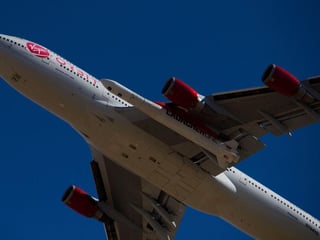Starlink internet: what is the SpaceX satellite internet service, speed, pre-order price - and is it available in the UK?
and live on Freeview channel 276
The satellite internet service operated by Elon Musk's SpaceX is available to pre-order.
Starlink has announced it is taking orders to a limited number of users and that the service will operate on a first-come, first-served basis.
Advertisement
Hide AdAdvertisement
Hide AdRegulators gave Starlink the green light in January 2021 to offer its service to UK users, as the world witnesses 'the new space race'.


So what is Starlink, how fast is the connection, how much does it cost and how many satellites is it planning on sending into space?
What is Starlink?
Starlink is a satellite internet service which began development in 2015.
The service will see thousands of small, lightweight and cost effective satellites sent into the Earth's low orbit to form a constellation network.
Advertisement
Hide AdAdvertisement
Hide AdThis constellation of satellites will work in combination with ground transceivers positioned on Earth to send data around the world.
It is aimed at customers and communities living in remote locations, often hard to reach broadband areas without access to high speed internet.
A growing number of companies, including OneWeb, are seeking to launch satellites into orbit on data driven missions over the coming years.
When will Starlink be available in the UK?
The US firm, based in Redmond, Washington, launched in North America in 2020 and was given regulatory approval for use in the UK in January.
Advertisement
Hide AdAdvertisement
Hide AdOther countries, including Australia, Greece and Germany, have followed suit in giving Starlink the green light to offer its services to their citizens.
The pre-order window for consumers is expected to be small as it is only available to a limited number of users per coverage area at this time.
What is the price of Starlink?
As is the way with new technology on the market, it comes at a cost, though Starlink says that prices should drop over time as the network grows.
In the UK, Starlink customers will pay an initial £439 for a satellite dish, Wi-Fi router, power supply, cables and mounting tripod to complete the setup.
Advertisement
Hide AdAdvertisement
Hide AdThere will then be a monthly cost of £84 to receive the service.
It requires a clear view of the sky to connect and users are asked to download the Starlink App to determine the best install location.
The app is compatible with either Apple or Android digital devices.
The emergence of competitors such as OneWeb and VirginOrbit are also likely to have an impact on costs as companies do battle for customers.
What is the speed of Starlink internet?
Advertisement
Hide AdAdvertisement
Hide AdStarlink's smaller satellites will be sent into low orbit - 60 times closer to Earth than traditional satellites - which it says will improve connection speeds.
The time it takes to send data from one point to the next is known as latency which Starlink says will be low and get faster as the network is established.
"Users can expect to see data speeds vary from 50Mb/s to 150Mb/s and latency from 20ms to 40ms in most locations over the next several months as we enhance the Starlink system. There will also be brief periods of no connectivity at all," its website states.
"As we launch more satellites, install more ground stations and improve our networking software, data speed, latency and uptime will improve dramatically."
How many satellites are in space?
Advertisement
Hide AdAdvertisement
Hide AdThere are currently around 6,000 satellites circling Earth and experts believe this number will rise significantly to 25,000 by 2025.
Of these, there are around 800 Starlink satellites currently in orbit with the company planning on sending thousands more over the next few years.
The space industry is worth around £285 billion - 60% of which is commercial - attracting the interest of hundreds of private firms.
Due to the large volume of satellites in space - and plans for more - there are longer term concerns of traffic management and disrupted night sky observations.
Both of which are recognised by Starlink which is working with several astronomy organisations to limit disruption.
